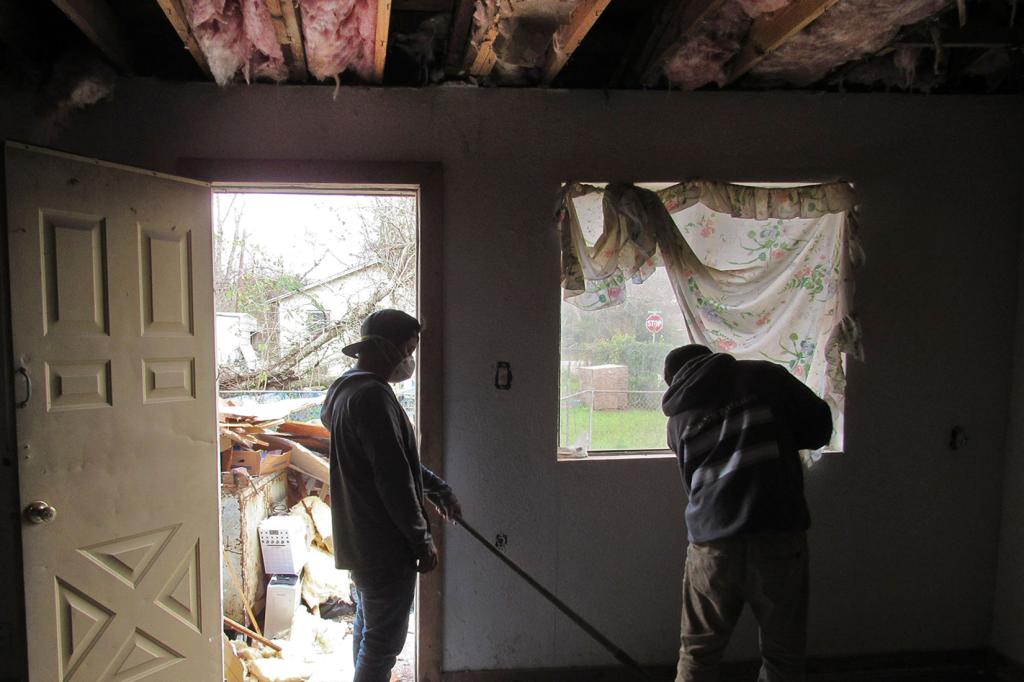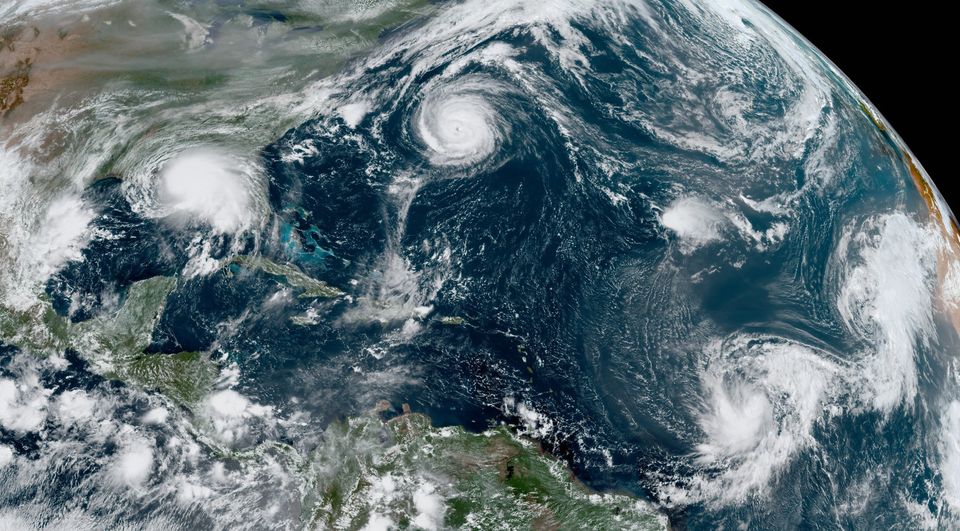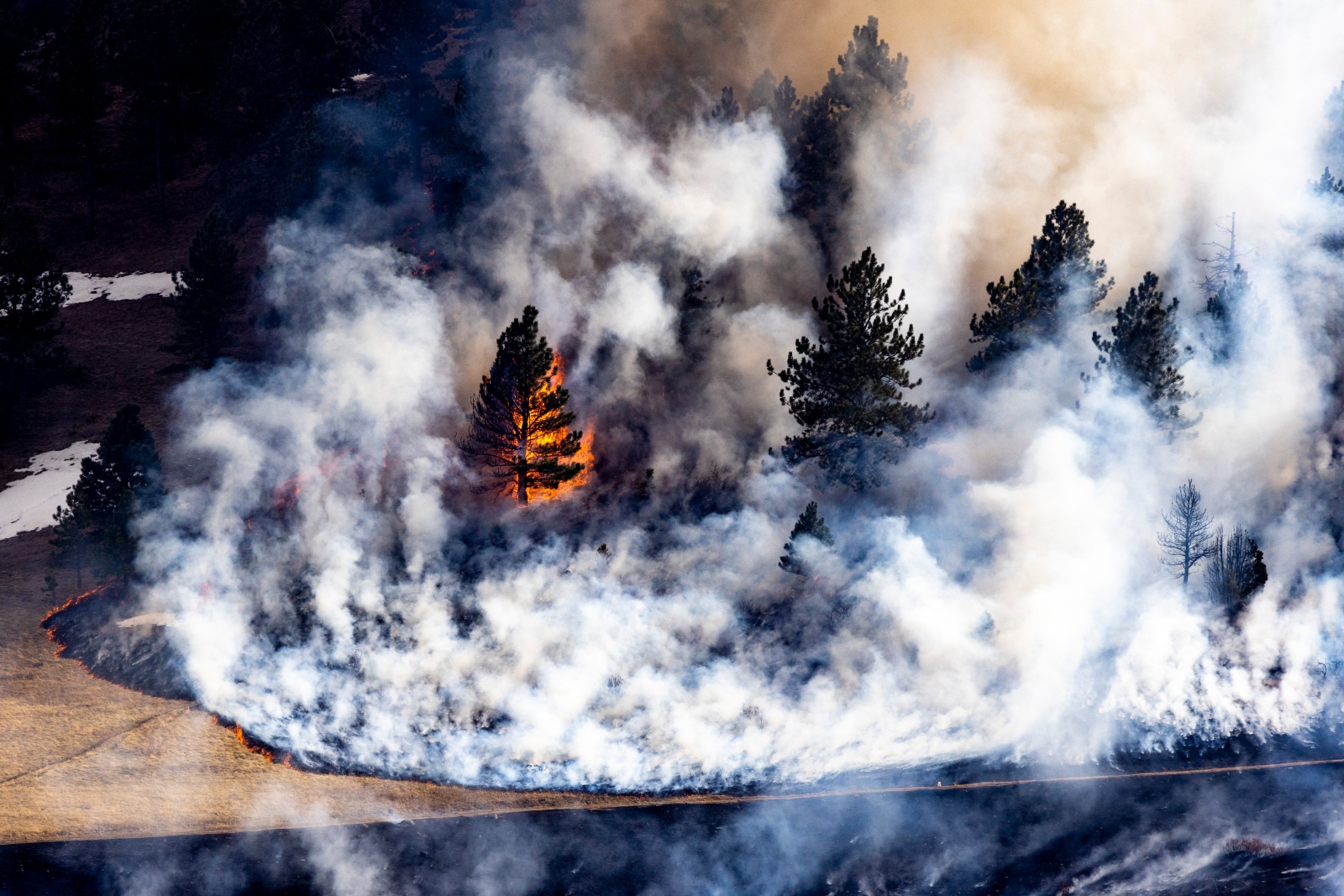In our world of warming waters, extreme Atlantic hurricane seasons are becoming more likely and much wetter. That’s according to a pair of studies published this week.
The fact that heat and moisture fuel hurricanes isn’t new, but the two studies offer fresh insights into how climate change is shaping today’s hurricanes.
“Climate change is often thought about as a long-term problem,” said Kevin Reed, an extreme weather expert at Stony Brook University and lead author of one of the studies, in a release accompanying the report in Nature Communications. “A problem for future society, for our children and grandchildren. But what we’re finding, particularly through changes in extreme weather … is that the impacts are already here.”
Reed’s study looked back to the record-breaking hurricane season in 2020. That year, the season was so active that it blasted through an entire alphabet worth of names, forcing meteorologists to pivot to Greek letters. In total, it gave rise to a record 30 named storms as well as the most storms to make landfall in the continental U.S. on record. In just two months, Hurricanes Sally, Laura, Delta, and Zeta tore through the Gulf Coast, hitting Louisiana especially hard. A year and a half later, communities are still struggling to rebuild.
Researchers recreated the 2020 hurricane season with models and found that warmer waters spurred wetter storms. Over a three-hour period, 11 percent more rain fell than what would have happened in a world without climate change. Over a three-day period, the rainfall totals were 8 percent higher.
Scientists know that climate change has intensified the strength of storms. But tying it to a specific storm or season is trickier, demanding complicated calculations. The scientists used models to create an alternate reality: one in which the 2020 hurricane season played out in a world without global warming. In that world, they estimated the average temperature would have been about 0.4 to 0.9 degrees Celsius (0.72 to 1.6 degrees Fahrenheit) lower with much less rain.
Usually, these attribution studies have honed in on the biggest players — Hurricane Harvey in 2017, for instance. This study’s approach is unique in that it considers an entire season, offering a robust look at the way climate change shapes hurricanes of all stripes.
In a separate study published this week, scientists in Germany and Switzerland found warming ocean temperatures have now doubled the chances of an extreme Atlantic hurricane season. Climate change driven by humanity’s reliance on fossil fuels has “contributed to a decisive increase” in the increasingly violent hurricanes seen since 1982, they said.
Given all that, it’s little surprise that this hurricane season is expected to be a busy one. Researchers at Colorado State University just published an early forecast for this year’s Atlantic hurricane season, anticipating “above-normal activity.” The researchers predict 19 named storms and nine hurricanes, whose names will start with Alex and end with Walter.




